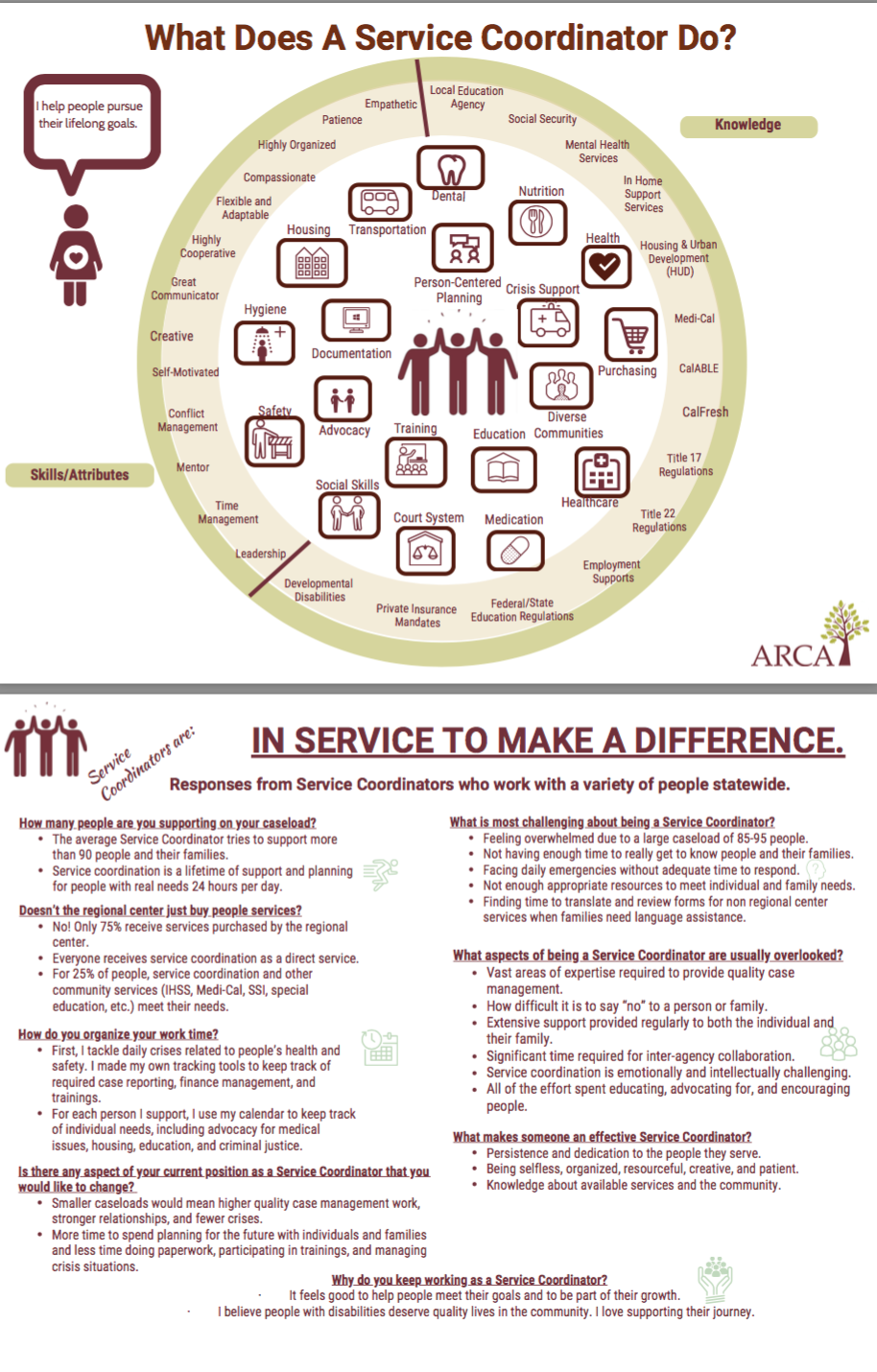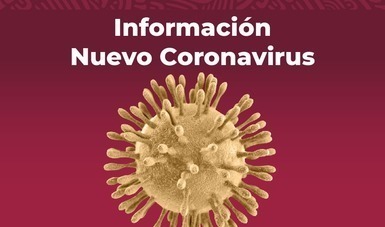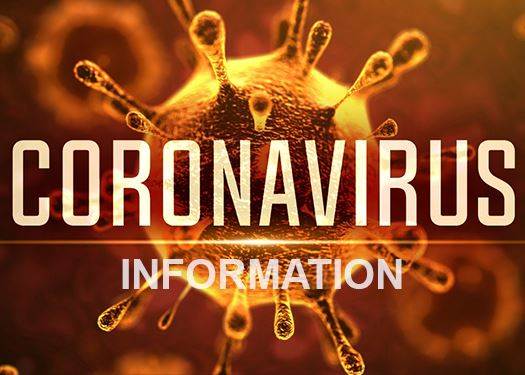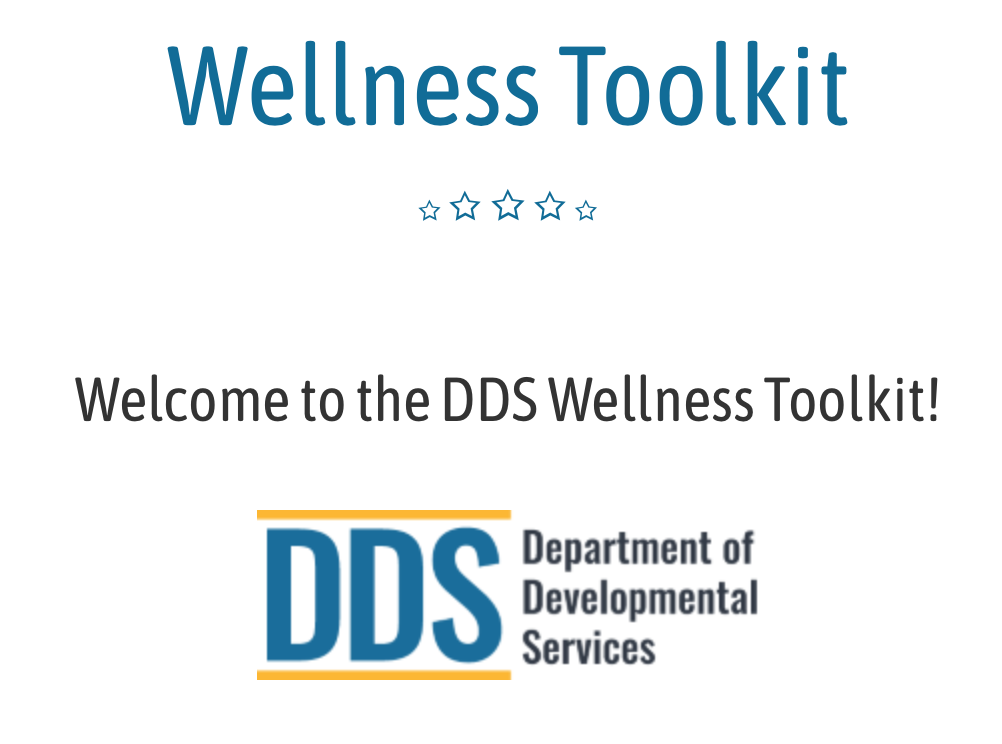Your Needs, And How Regional Centers Meet Them

Have you ever wanted to learn how over 350,000 Californians with developmental disabilities and their families are connected to services? Through the Lanterman Act, service starts with their regional center. The most important servicecenters provide is service coordination.
And it's not just program plans and meetings. It's a lifelong resource and relationship. To be effective, service coordinators need to know many systems and programs, and have diverse talents, to help people pursue their lifelong goals.
Have you wanted to learn more about what service coordinators do, and what their work looks like?
Download the service coordination infographic from ARCA
How Underfunding Service Coordination Hurts Us All
This year, ARCA is pleased to work with other members of the Lanterman Coalition to advocate for phasing in the rate study's recommendations for service providers, ensuring providers who got left out receive last year's funding increases, making those increases permanent, and ensuring minimum wage needs are met. The Coalition's proposal also has one other part....
"Take immediate actions to comply with Federal and State caseload ratios"
Service coordinators are the backbone of California's 21 regional centers. Their work is built on the fundamental goal of forming lifelong trusting relationships that help ensure people (and families) can make their goals into realities - for their entire lives.
But for years, centers have struggled to provide people the individualized attention and support they need, because the State of California has made hardly any change to the money given to centers to hire these critical staff.
ARCA requests the full funding of regional center caseload ratio needs, inclusive of the staffing needs to support service coordinators required to meet statutory caseload requirements.
With a system that needs an estimated 800 additional service coordinators to properly serve people, it's now time to commit to a permanent fix so our system can:
- Better serve diverse communities and meet their unique needs;
- Ensure billions of dollars in federal matching funds; and
- Support people with developmental disabilities who seek the most productive, community-integrated, and independent lives possible.
Read why California needs to act to support the dedicated professionals who provide a lifetime of connection for people with developmental disabilities, their families, and the service providers who help make community life possible.
File







